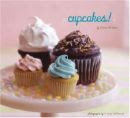
OK, Rouge Wavers! Grab some eggnog and sing! And a
one, and a two...
On the first day of Strike, the WGA/AMPTP gave to me -
a headache behind my eye.
On the second day of strike, the WGA/AMPTP gave to me
- two sources of lost income, and a headache behind my
eye.
On the third day of strike, the WGA/AMPTP gave to me -
three trips to unemployment, two sources of lost
income and a headache behind my eye.
On the fourth day of strike, the WGA/AMPTP gave to me
- four fights with my producing friends, three trips
to unemployment, two sources of lost income and a
headache behind my eye.
On the fifth day of Strike, the WGA/AMPTP gave to me -
five Golden Arches (where I'm working now), four
fights with my producing friends, three trips to
unemployment, two sources of lost income and a
headache behind my eye.
On the sixth day of Strike, the WGA/AMPTP gave to me,
a six pack of beer to ease the pain, five Golden
Arches (where I'm working now), four fights with my
producing friends, three trips to unemployment, two
sources of lost income and a headache behind my eye.
On the seventh day of Strike, the WGA/AMPTP gave to
me, seven days of hope last week, a six pack of beer
to ease the pain, five Golden Arches (where I'm
working now), four fights with my producing friends,
three trips to unemployment, two sources of lost
income and a headache behind my eye.
On the eight day of Strike, the WGA/AMPTP gave to me,
eight cents a DVD, seven days of hope last week, a six
pack of beer to ease the pain, five Golden Arches
(where I'm working now), four fights with my producing
friends, three trips to unemployment, two sources of
lost income and a headache behind my eye.
On the ninth day of Strike, the WGA/AMPTP gave to me,
nine more reasons to join the DGA, eight cents a DVD,
seven days of hope last week, a six pack of beer to
ease the pain, five Golden Arches (where I'm working
now), four fights with my producing friends, three
trips to unemployment, two sources of lost income and
a headache behind my eye.
On the tenth day of Strike, the WGA/AMPTP gave to me,
ten producer lords a leaping around what the writers
want, nine more reasons to join the DGA, eight cents a
DVD, seven days of hope last week, a six pack of beer
to ease the pain, five Golden Arches (where I'm
working now), four fights with my producing friends,
three trips to unemployment, two sources of lost
income and a headache behind my eye.
On the eleventh day of Strike, the WGA/AMPTP gave to
me, eleven pied pipers leading production to indie
land and abroad, ten producer lords a leaping around
what the writers want, nine more reasons to join the
DGA, eight cents a DVD, seven days of hope last week,
a six pack of beer to ease the pain, five Golden
Arches (where I'm working now), four fights with my
producing friends, three trips to unemployment, two
sources of lost income and a headache behind my eye.
On the twelveth day of Strike, the WGA/AMPTP gave to
me, twelve WGA negotiators drumming to the beat of
their own drum (and making no headway until the
Spring), eleven pied pipers leading production to
indie land and abroad, ten producer lords a leaping
around what the writers want, nine more reasons to
join the DGA, eight cents a DVD, seven days of hope
last week, a six pack of beer to ease the pain, five
Golden Arches (where I'm working now), four fights
with my producing friends, three trips to
unemployment, two sources of lost income and...
...A HEADACHE BEHIND MY EYE!!!!!!!!!
If you enjoyed this post, follow me on Twitter or subscribe via RSS.

![]()













































